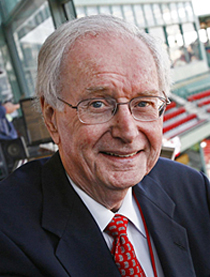
Culture
The playoff system is not a guarantee that the best team will win out in the end. It often works out that way …

Flavin
There used to be a time, boys and girls, when a baseball season was determined by who won the most games. For example, if Team A won 100 games in the American League, edging out Team B, which won 99, Team A would be declared the winner of the "regular season" and would be eligible to compete against its counterpart from the National League in the World Series. All the other teams in the league would go home for the winter. That is no longer the case, nor has it been for more than half a century. Nowadays, if a team wins the regular season, it is merely declared the number one seed and given home field advantage in an elimination tournament to determine the league's champion.
For those of you old enough to remember, which makes you pretty darn old, the 1967 American League pennant race was one of the most exciting in baseball history and one of the last that really meant anything. That year, four teams, the Chicago White Sox, the Minnesota Twins, the Detroit Tigers, and that season's Cinderella team, the Boston Red Sox, battled it out, tooth and nail, for the pennant. With one week to go, the White Sox held first place, then they lost three in a row to fall out of contention, leaving the Twins, Tigers, and Red Sox still in the race.
On the morning of the season's final day, the Twins and the Red Sox had identical records of 91 and 70 and were scheduled to face each other at Fenway Park, while the Tigers were a half game behind at 90 and 70. They had a doubleheader scheduled 3,000 miles away in Anaheim, California, against the Angels. The Red Sox beat the Twins, five to three, in a stirring come-from-behind victory, while the Tigers could manage only a split against the Angels, thus cementing Boston's Impossible Dream season and the resurrection of baseball in New England. The other teams were left to clean out their lockers and reserve starting times at their local golf courses. Under today's rules, they would all be eligible for an elimination tournament, which is known as "the playoffs."
This is in no way meant to diminish the playoff system, which keeps more teams in contention and often adds to the drama of a season, but it does take away from the potential excitement of a pennant race. For example, we'll never see another one which captured the imagination the way that the one in 1967 did.
Also, teams no longer have the incentive to finish with best won/lost record in the league they once had. It used to mean everything. The important thing now is to qualify for the playoffs.
Many people forget that in 2004, the year the Red Sox broke the 86-year Curse of the Bambino, they were the wild card team in the playoffs, having finished the regular season four games behind the dreaded Yankees; but the Sox caught fire just in time, winning four in a row against New York with their backs against the wall and then sweeping the St. Louis Cardinals in the World Series.
The playoff system is not a guarantee that the best team will win out in the end. It often works out that way, but in 2013, no one thought the Red Sox were better than the Tigers, who had two Hall of Fame pitchers, Justin Verlander and Max Scherzer, anchoring their rotation and another one, Miguel Cabrera, aided by the likes of Prince Fielder, Victor Martinez, and Torii Hunter, in the batting order. But the Sox, especially David Ortiz, were red hot and took Detroit in six games on their way to a World Series championship.
Last year, they had to win a play-in game against the Yankees to qualify, and then came within two games of the World Series before their bats went suddenly cold and they were eliminated by the Houston Astros.
Other sports have long used the playoff system to decide championships. The National Hockey League, dating back to the days when there were only six teams in the entire league, used it, meaning that the regular season eliminated just two teams, usually the Bruins and the Rangers, from contention. That was the case until Bobby Orr came along.
The Celtics, who usually finished with the best-in-the-league record during their amazing 1957-1969 dynasty, had been victimized by the ravages of age by 1969 and no longer dominated the league. They finished fourth in the NBA Eastern Division with a record of only 48 and 34, nine games behind the Washington Bullets, but they still had Bill Russell, arthritic knees and all, they had John Havlicek, then at the top of his game, and they still knew how to win big games. Which is just what they did. The Los Angeles Lakers had added Wilt Chamberlain to their roster, making them, many thought, unbeatable; but Chamberlain did not fit in with the Lakers' style of play or with their culture and he actually made them vulnerable. The Celtics took advantage and the result was their 11th championship in 13 seasons.
The Red Sox trail the Yankees by double digits in the American League East and have little hope of catching them this season. But they are right in the hunt for the third and last playoff spot. If they win it, they will be in the tournament, and then anything can happen. Sometimes it actually does.
- Dick Flavin is a New York Times bestselling author; the Boston Red Sox "Poet Laureate" and The Pilot's recently minted Sports' columnist.
Recent articles in the Culture & Events section
-
Boston and the nation respond to the San Francisco Earthquake of 1906Thomas Lester
-
See you in the storyLaura Kelly Fanucci
-
'Dignitas' and the mediaRussell Shaw
-
Scripture Reflection for April 14, 2024, Third Sunday of EasterDeacon Greg Kandra
-
St. Helena's House is established in the South EndThomas Lester


















